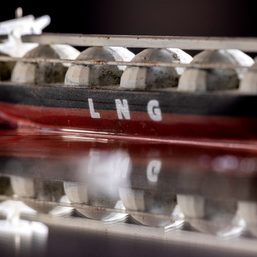SUMMARY
This is AI generated summarization, which may have errors. For context, always refer to the full article.

BRUSSELS, Belgium – European Union countries agreed to set price caps on Russian refined oil products to limit Moscow’s funds for its invasion of Ukraine, the Swedish presidency of the EU said on Friday, February 3.
EU diplomats said the price caps are $100 per barrel on products that trade at a premium to crude, principally diesel, and $45 per barrel for products that trade at a discount, such as fuel oil and naphtha. Ambassadors for the 27 EU countries agreed on the European Commission proposal, which will apply from Sunday, February 5.
The price caps, together with an EU ban on Russian oil product imports, are part of a broader agreement among the Group of Seven countries. It follows a $60 per barrel cap on Russian crude that G7 countries imposed on December 5 as the G7, the EU, and Australia seek to limit Moscow’s ability to fund its war in Ukraine.
Both caps prohibit Western insurance, shipping, and other companies from financing, insuring, trading, brokering, or carrying cargoes of Russian crude and oil products unless they were bought at or below the set price caps.
There will be a 55-day transition period for seaborne Russian oil products bought and loaded before Sunday. The wind-down period for Russian crude oil was 45 days.
Poland and Baltic states Latvia, Lithuania, and Estonia had pushed for a review of the crude oil price cap now, instead of as planned in mid-March, diplomats said, dragging talks for days. They want a lower price cap to curb Russia’s revenues from fuel.
For crude, regular reviews will set a price cap at least 5% below the average market price for Russian oil. – Rappler.com
Add a comment
How does this make you feel?




















There are no comments yet. Add your comment to start the conversation.